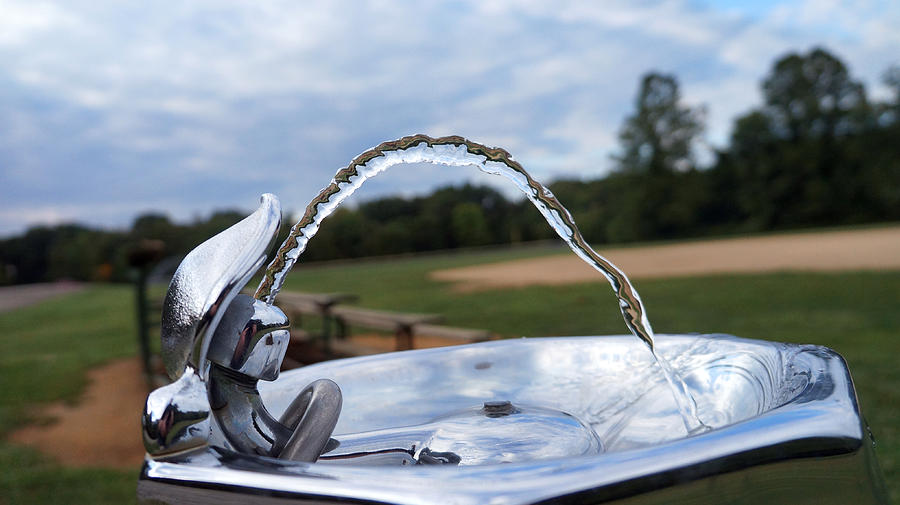Did Anyone Really Invent Water?
Hey there! Have you ever wondered who invented water? Dive into the fascinating history of H2O!

Source pixels.com
Who Discovered Water?
Water: A Precious Natural Resource
Water is a precious resource that covers approximately 71% of the Earth's surface and is a vital component of all living organisms. Every human, animal, and plant requires water to survive and thrive. Without water, life as we know it would be impossible. Since water existed naturally since the beginning of time, it cannot be invented or discovered. However, scientists and researchers have studied and explored ways to understand the properties and characteristics of water, and how we can maximize its potential for our daily use.The Significance of Water Uses
Water plays an important role in human life and is used for various purposes. In many countries, access to clean water is considered a fundamental human right. The significance of water usage is evident in agriculture, where water is required for irrigation and to grow crops to feed the world's population. Water is also used in cooking, washing, and industrial processes. Therefore, water is a valuable commodity that must not be taken for granted.Revolutionizing Water Technology
Technology has significantly impacted the way humans transport, store, and purify water. The invention of the waterwheel and various methods of water transport such as dams, canals, and aqueducts have revolutionized water use throughout history. The water pump was invented to pump water from deep wells, making it easy to access it. In modern times, water treatment plants ensure that water is safe to drink, and advanced purification technologies have been developed to cater to larger populations. The availability of clean water, thanks to advancements in water technology, has enabled greater agricultural output, healthier living conditions, and improved sanitation.In conclusion, water is a natural resource that cannot be credited to any particular human inventor. However, through scientific research and advancements in technology, humans have been able to exploit water's properties effectively. Regardless of its abundance, water is a valuable and indispensable resource that must not be misused or taken for granted. The responsible use of water is pivotal to ensuring its long-term sustainability and optimizing its potential for human use.John Froelich: The Inventor of the First Gasoline-Powered TractorThe Evolution of Water-related Inventions
Ancient Water-Related Inventions
Water is a fundamental element of our planet, and humans have been using it for centuries. Early civilizations like the Egyptians, Greeks, and Romans recognized the importance of water and used it for a variety of purposes. These early societies developed multiple water-related inventions, some of which are still in use today.
One of the most famous ancient inventions related to water is the water clock. This invention allowed time to be measured by the flow of water, enabling early societies to develop schedules and plan their daily activities. The waterwheel is another ancient invention that revolutionized society. This invention allowed early civilizations to harness the power of moving water, which was used for milling grain and pumping water for irrigation systems.
Speaking of irrigation systems, the ancient societies developed extensive networks of canals and aqueducts that allowed them to distribute water across large areas for agriculture. Some of these irrigation systems were so advanced that they are still in use today.
Industrial Revolution and Water Inventions
The Industrial Revolution in the 18th and 19th centuries brought about an increased demand for energy. The need for efficiency during this time led to significant advancements in steam power, which, in turn, led to the development of more efficient water-related inventions.
The most famous water-related invention of the industrial revolution is undoubtedly the steam engine. This invention allowed for the mechanical production of goods, revolutionizing the manufacturing industry. Steam power also led to the development of hydropower, which harnesses the energy of falling water to generate electricity. Additionally, the development of water pump technology allowed for more efficient water distribution and management, and in some cases, the remediation of contaminated water sources.
Modern-Day Water Inventions
Despite significant advancements in water-related inventions, modern society faces many challenges related to water. Climate change has led to more frequent droughts and water scarcity, and the increasing population demands ever-greater quantities of water for drinking, agriculture, and industry. To address these challenges, modern-day water-related inventions are focused on sustainability and efficiency.
One modern-day invention is solar water pumps, which remove the need for electricity in water distribution systems in remote locations. These pumps harness the power of the sun and are environmentally sustainable. Water-saving showerheads are another modern invention that reduces water usage while still providing an adequate showering experience. Finally, as the demand for drinking water increases, new technologies like desalination provide a way to filter salt from seawater and other saline sources to create potable water.
Conclusion
Water has always been an essential element in human society. From ancient water clocks to modern desalination technology, water-related inventions have significantly impacted human civilization. As we face an uncertain future with changing climates and growing populations, it is more important than ever to continue developing sustainable water-related inventions that can help us meet the challenges of the coming years.
The Evolution of Video Recording: A Brief History